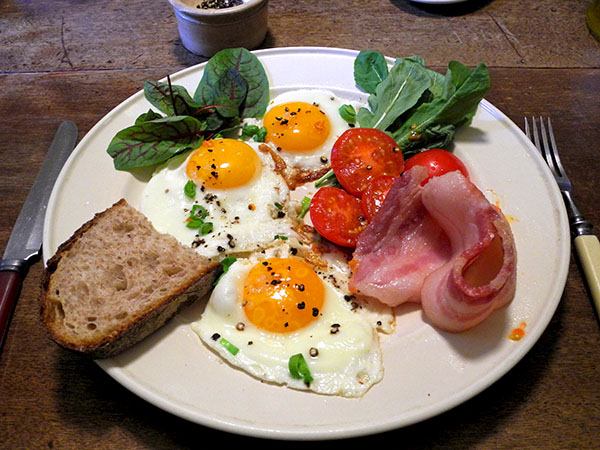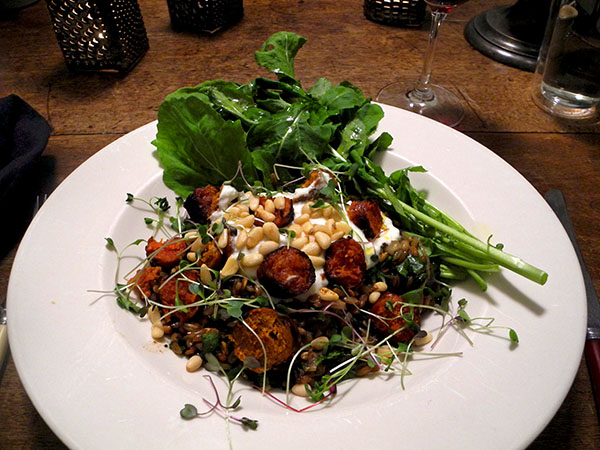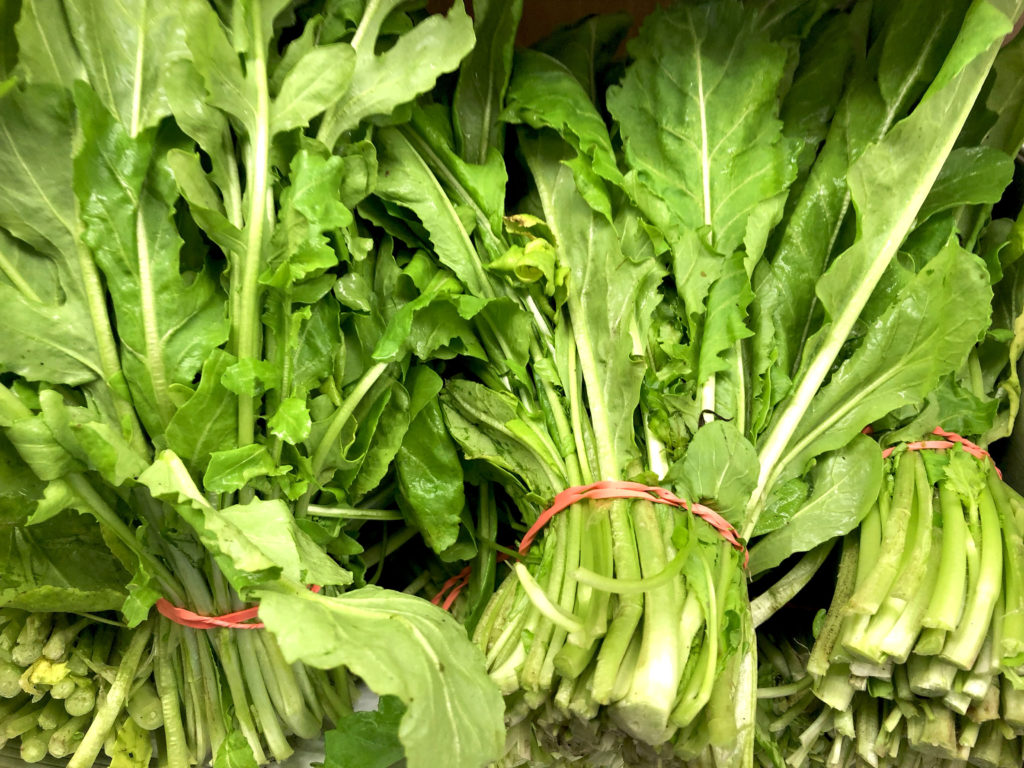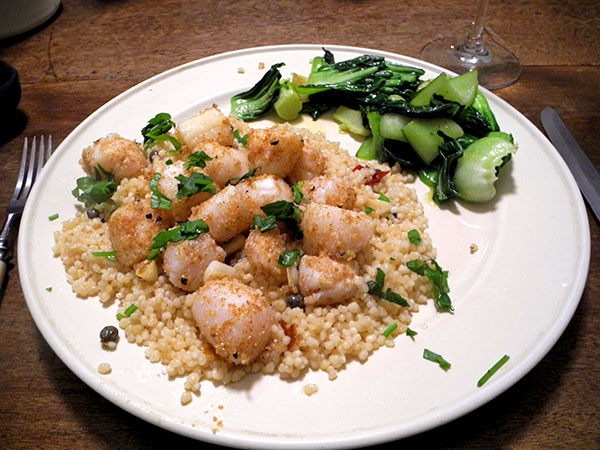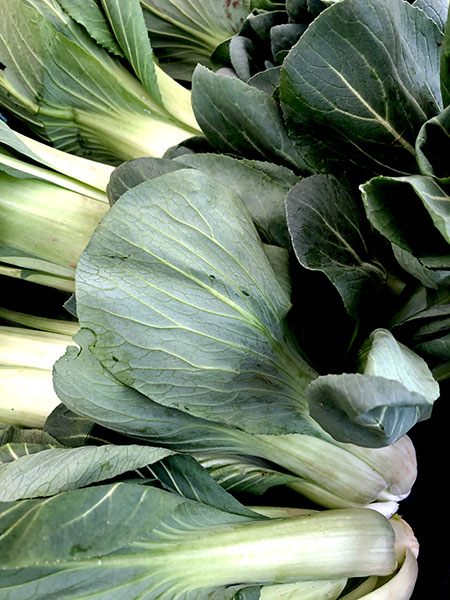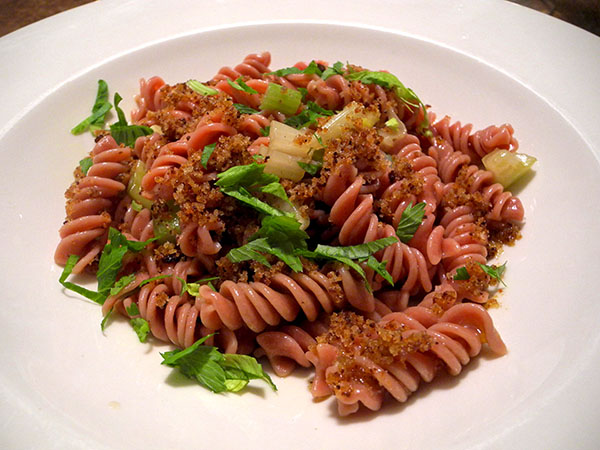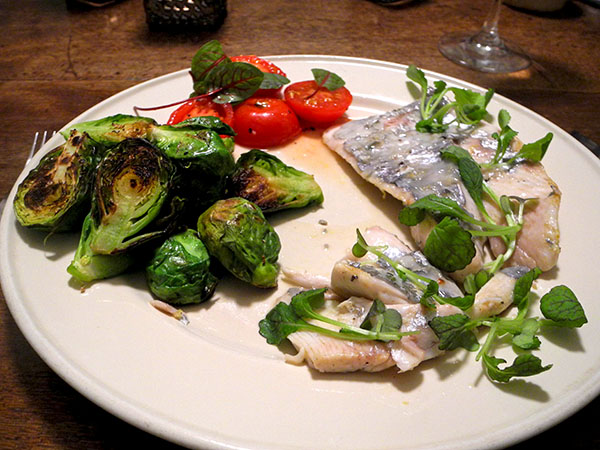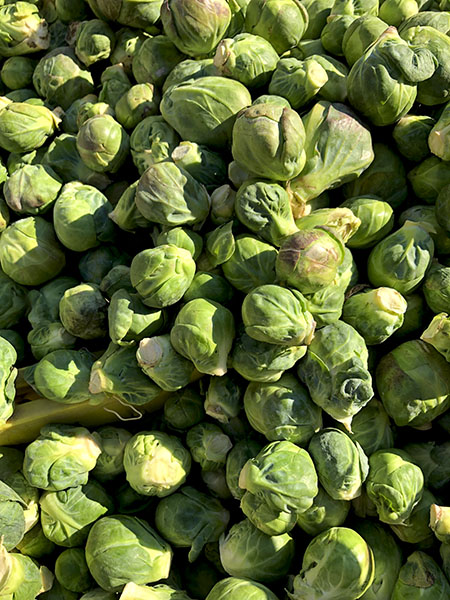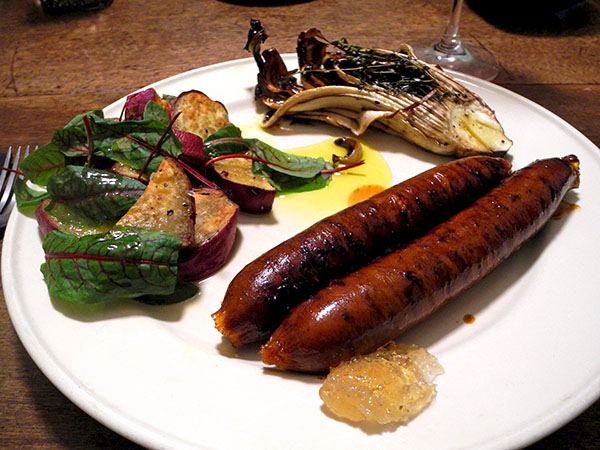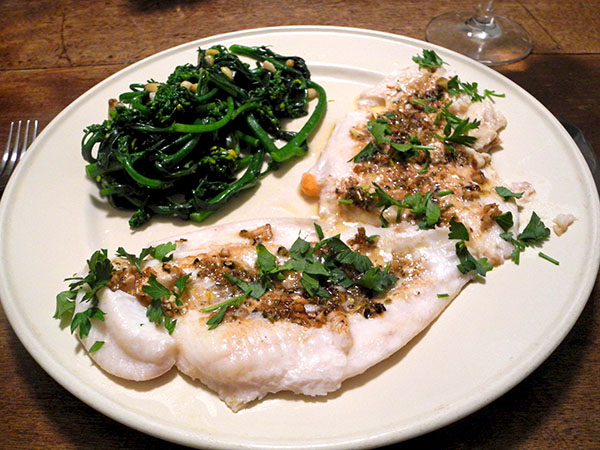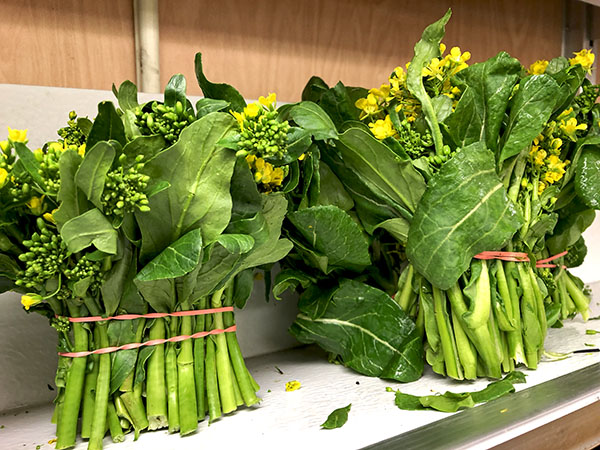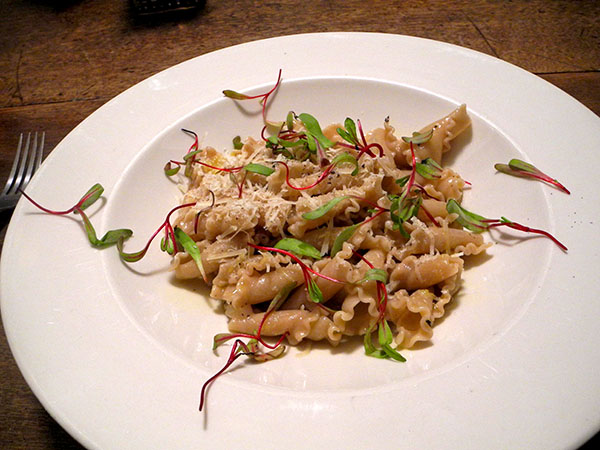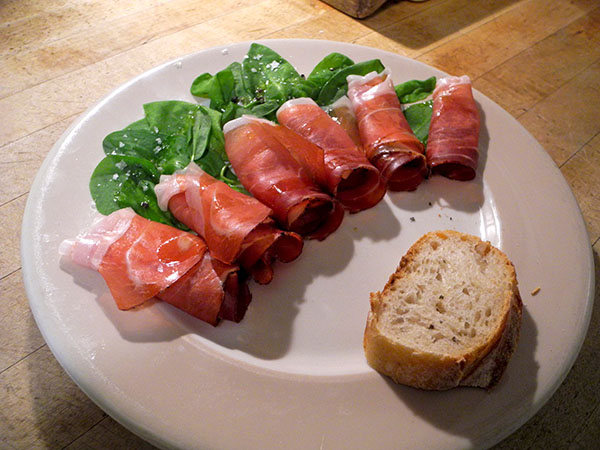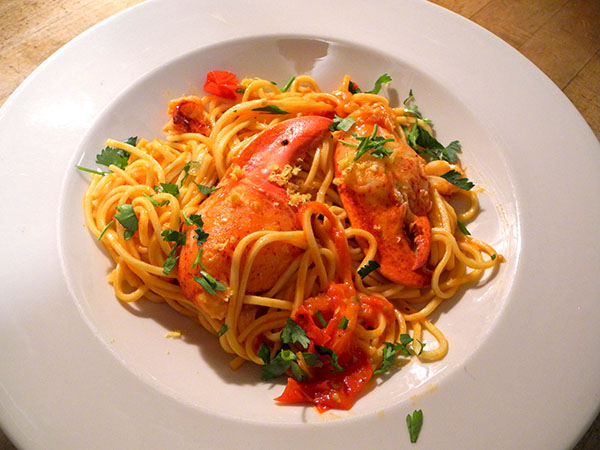
I don’t know where the idea for this dinner actually started in my head, but somewhere near the beginning I spotted a very neat package of a small cut of pork belly in the Flying Pigs stall at the Greenmarket. Roughly a week later I picked out a similar one to take home.
Then I waited for a cold weekend day when we would both enjoy the aroma of something roasting for hours in our old oven. Years ago, inside my ancient Rhode Island house, I would have been able to offer the full winter treatment: I’d have a wood fire (or two) burning while the oven did its work. Also, this particular piece, for only 2, was small, so it could give us barely an hour and a half of its perfume, but they were good moments while they lasted.
There are a surprising number of suggestions for cooking the perfect Schweinebauch, or pork belly, on line, but none in the 4 or 5 English-language German cooking books I own, which probably says more about pork belly being a vogue than its fundamental importance in German cookery.
In the end I found inspiration in a pretty simple recipe on an Australian site. I made some changes, and I had to guess about the cooking time, since I had not seen a discussion, there or anywhere else, of a belly weighing as little as 14 and a half ounces, but Barry and I were very, very happy with the results.
There were also potato dumplings, and a bit of red kale, or what I’ll translate as ‚Russischer Roter‘ Kohl.
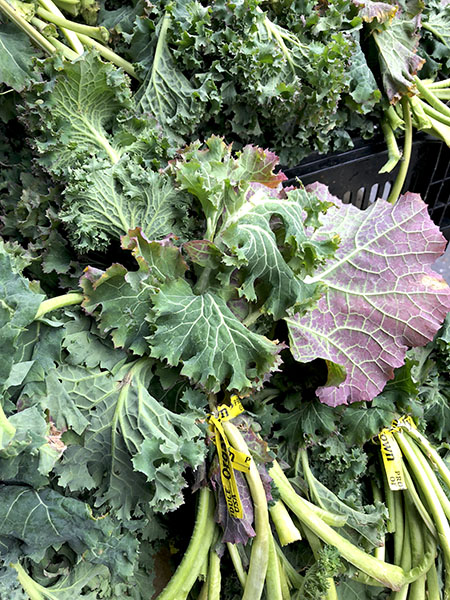
- *the Australian site’s recipe was mostly followed as published: I used just under a pound of a piece of boneless pork belly (skin on) from Flying Pigs Farm, its skin and fat layer scored without cutting into the meat, in a checkered pattern of 1/4″ squares, rubbed all over with a marinade consisting of a paste created inside a mortar and pestle of one large crushed clove of Rocambole garlic from Keith’s Farm, ground dry whole cloves and caraway seeds, dried pepperoncino Calabresi secchi from Buon Italia, fresh thyme leaves from from Westside Market, fresh winter savory from Stokes Farm (that stuff lasts forever), some sea salt, a Whole Foods Portuguese olive oil and some Whole Foods organic lemon juice, the pork allowed to rest on the counter for 30 minutes or so, then placed inside a small oval enameled heavy cast iron pan on a bed of sliced ‘Expression Sweet’ onions from Norwich Meadows Farm and placed in a 425º oven for about 30 minutes, the temperature then reduced to about 340º and the pork roasted another hour, or until tender, cooked through, and the skin quite crisp, the oven turned off and, depending on the progress of the accompanying vegetables, left inside with the door ajar to some degree, or else removed altogether, allowed to rest for at least 15 minutes, but, ideally, longer, the little roast then sliced along the cross hatches on the top, arranged on the plates and garnished with chopped parsley from Whole Foods Market
- four frozen Kartoffelklöße (potato dumplings) from Schaller & Weber, defrosted the day before, boiled for about 12 minutes in salted water, drained and arranged on the plates, ladled with a sauce made by degreasing the pan in which the pork had cooked, adding about a quarter cup of white wine and boiling it until it had greatly reduced, allowing it to cool a little, after which several tablespoons of cold butter were added and stirred around until melted (a little of the sauce, minus the onions, was drizzled on the pork)
- red kale (‚Russischer Roter‘ Kohl) from Norwich Meadows Farm, sautéed in olive oil in which 2 bruised and halved Keith’s Farm Rocambole garlic cloves had first been allowed to sweat and barely begin to brown, the greens seasoned with salt, pepper, and a little more olive oil
- *the wine was a great pairing for this meal, a German (Pfalz) white, Friedrich Becker Pinot Blanc 2013, remaining from a purchase some time ago at our very-much-missed former neighborhood wine shop, Appellation Wine & Spirits
- *the music was a beautiful 1780-1781 opera by a Mozart contemporary, Joseph Martin Kraus (1756−1792), ‘Proserpin’, in a performance by The New Stockholm Chamber Orchestra (Stockholms Nya Kammarorkester) and choir, conducted by Mark Tatlow
